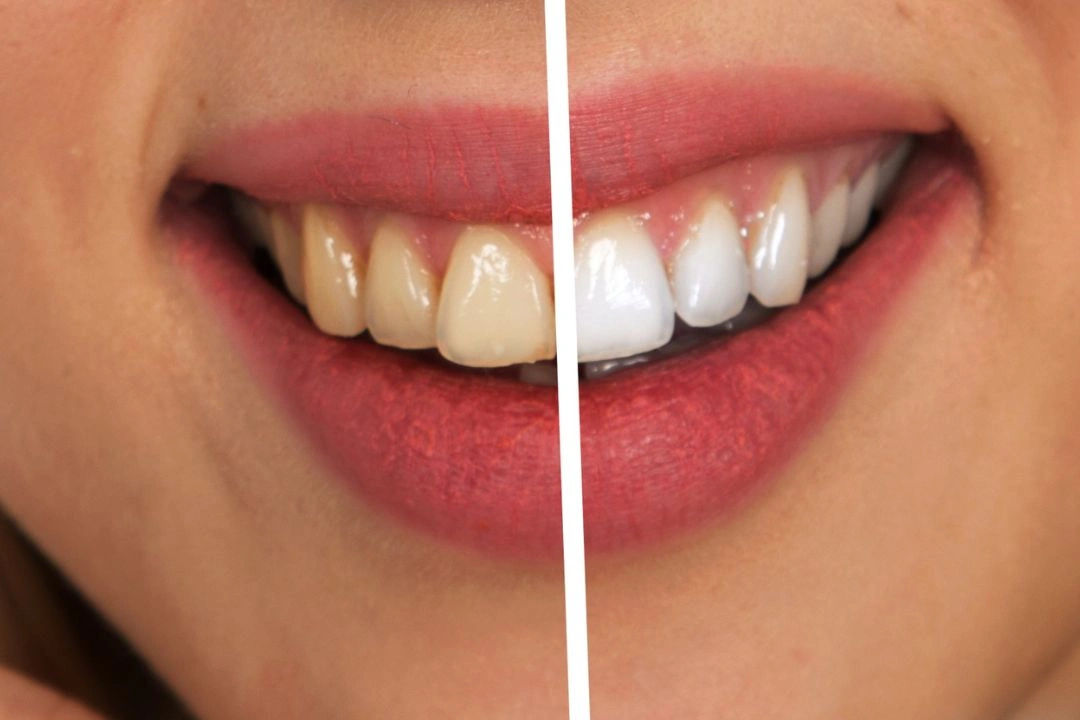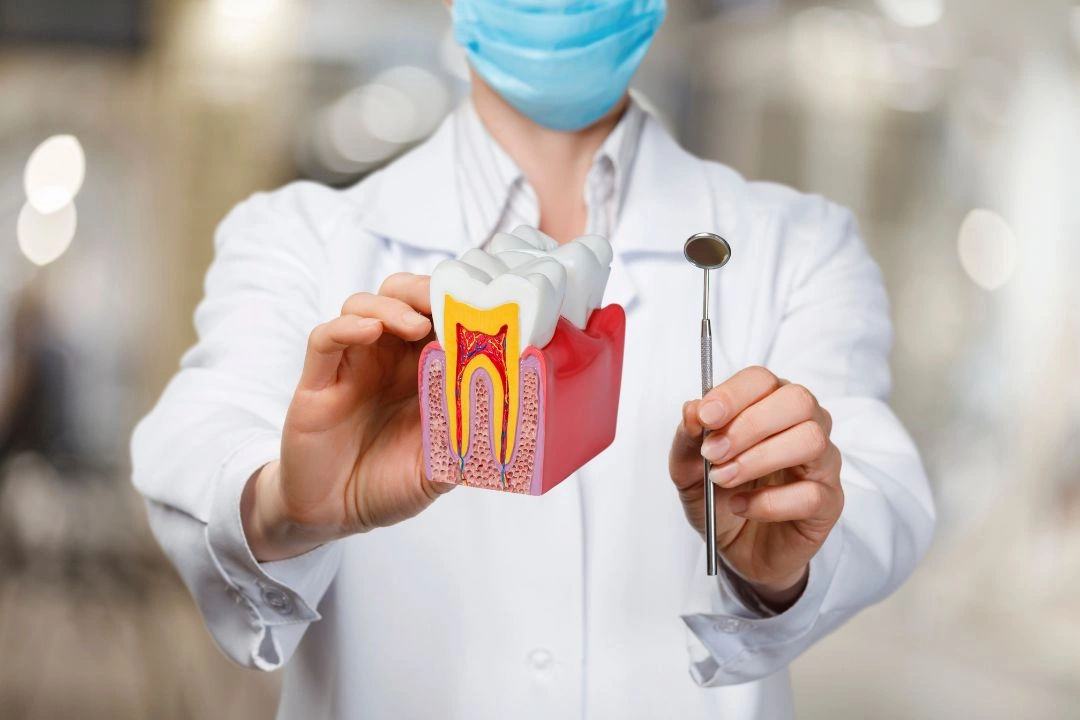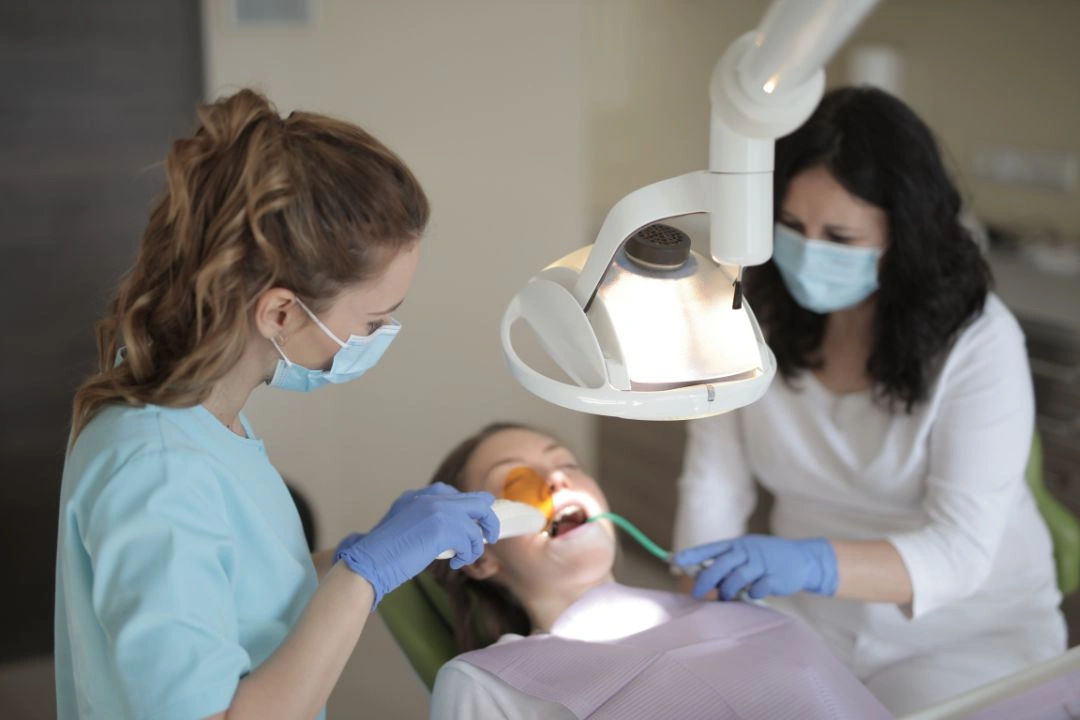What Is The Fastest Way To Cure Sensitive Teeth?

Introduction
Are you tired of wincing in pain every time you indulge in your favourite ice cream or sip on a hot cup of coffee? Sensitive teeth can be a real buzz kill, but fret not! We've got the inside scoop on the fastest ways to find relief and enjoy your favourite treats without the agony. In this blog, we'll explore practical strategies, innovative techniques, and expert advice to help you cure sensitive teeth as quickly as possible. Plus, we'll also discuss the importance of finding the right dental care, which is where "dentists near me" come into the picture.
Section 1: Understanding Sensitive Teeth
Before we dive into the fastest ways to cure sensitive teeth, let's begin by understanding the root causes. Knowing the why and how of sensitive teeth is essential for effective treatment.
1.1 The Anatomy of Sensitive Teeth
When you experience tooth sensitivity, it's crucial to understand the underlying structure of your teeth. Your teeth consist of multiple layers, and the outermost layer, the enamel, plays a pivotal role in protecting the inner parts. Beneath the enamel lies the dentin, a softer tissue filled with tiny tubules. If the enamel is compromised, it exposes the dentin, leading to sensitivity.
The enamel protects the dentin from external stimuli, but it's not invulnerable. Enamel erosion or damage can expose the dentin and make your teeth more sensitive to hot, cold, sweet, and acidic foods and beverages. Understanding this basic anatomy is the first step in addressing tooth sensitivity effectively.
1.2 Common Causes of Tooth Sensitivity
Tooth sensitivity can have various causes. Understanding these causes is essential for finding the right solution. Some of the common factors contributing to sensitive teeth include:
- Enamel Erosion:
Enamel can erode due to acidic foods, beverages, and aggressive brushing.
- Gum Recession:
When your gums recede, the dentin gets exposed, causing sensitivity.
- Tooth Decay:
Cavities can reach the dentin, leading to pain and sensitivity.
- Cracked Teeth:
Cracks or fractures in the teeth can allow stimuli to reach the dentin.
Identifying the cause of your sensitivity is crucial for effective treatment.
Section 2: Dental Care near You
You'll soon realize that the key to curing sensitive teeth quickly is seeking professional dental care. This section highlights the importance of finding "dentists near me."
2.1 The Role of a Dentist
Dentists are your allies in the battle against sensitive teeth. They possess the knowledge and tools to diagnose the root cause of your sensitivity and provide targeted treatment. A dentist can:
- Conduct a thorough examination to identify the cause of your sensitivity.
- Recommend appropriate treatments, which may include desensitizing procedures or dental work.
- Offer guidance on maintaining good oral hygiene practices to prevent future sensitivity.
In short, a dentist is your first line of defence in the fight against sensitive teeth.
2.2 Finding the Right Dentist
Now that you understand the importance of a dentist, the next step is to find the right one. Here are some tips to help you locate the perfect dentist who understands your unique dental needs:
- Ask for Recommendations:
Seek recommendations from friends, family, or colleagues who've had positive experiences with their dentists.
- Read Reviews:
Online reviews can provide insights into the quality of care provided by different dentists.
- Check Credentials:
Ensure your chosen dentist is qualified and licensed to practice in your area.
- Interview Dentists:
Don't hesitate to schedule consultations with potential dentists to assess their expertise and your comfort level with them.
Section 3: Fast-Acting Home Remedies
Now, let's get to the good stuff! Here are some quick and effective home remedies that you can start using immediately.
3.1 Saltwater Rinse
One of the simplest and most effective home remedies for immediate relief from tooth sensitivity is a saltwater rinse. This remedy works because saltwater:
- Reduces inflammation and promotes healing of oral tissues.
- Balances the pH levels in your mouth, creating an environment less conducive to bacterial growth.
- Provides temporary relief from discomfort and sensitivity.
To prepare a saltwater rinse, mix half a teaspoon of salt in eight ounces of warm water. Swish the solution in your mouth for 30 seconds and then spit it out. Use this rinse a few times a day for quick relief.
3.2 Fluoride Toothpaste
Using fluoride toothpaste is an excellent way to reduce tooth sensitivity. Fluoride strengthens the enamel and helps block the tubules in the dentin, reducing sensitivity over time.
When choosing fluoride toothpaste, look for products that are specifically designed for sensitive teeth. These toothpastes often contain higher fluoride concentrations and provide a protective shield for your teeth.
Be sure to brush your teeth gently with fluoride toothpaste, as aggressive brushing can further damage your enamel.
3.3 Desensitizing Toothpaste and Gels
Over-the-counter desensitizing toothpaste and gels are designed to provide rapid relief from tooth sensitivity. These products typically contain compounds like potassium nitrate or strontium chloride, which block the nerve pathways that transmit pain signals from the tooth's surface to the brain.
To use desensitizing toothpaste or gel, simply apply a small amount to your toothbrush and brush your teeth as usual. For best results, use these products consistently over a few weeks.
Section 4: Mindful Oral Hygiene
Optimizing your oral hygiene routine can go a long way in curing sensitive teeth quickly.
4.1 Choosing the Right Toothbrush
The toothbrush you use can significantly impact your oral health, especially if you have sensitive teeth. It's advisable to opt for a toothbrush with soft bristles. Soft-bristle brushes effectively clean your teeth without causing additional enamel wear or gum irritation.
When selecting a toothbrush, look for the American Dental Association (ADA) seal of approval, which ensures it meets quality and safety standards.
4.2 Proper Brushing Technique
Even with the right toothbrush, improper brushing techniques can lead to enamel erosion and gum recession. Here's a step-by-step guide to gentle, effective brushing:
- Wet your toothbrush and apply a small amount of toothpaste.
- Hold the toothbrush at a 45-degree angle to your gums.
- Use gentle, circular motions to clean each tooth's surface.
- Be sure to brush all surfaces, including the front, back, and chewing surfaces of your teeth.
- Pay extra attention to the gum line and areas with sensitivity.
It's crucial not to apply excessive pressure, as this can worsen tooth sensitivity.
4.3 Regular Flossing and Mouthwash
Flossing and using mouthwash are often overlooked aspects of oral hygiene, but they can make a big difference when dealing with sensitive teeth.
- Flossing:
Regular flossing helps remove food particles and plaque from between your teeth, reducing the risk of cavities and gum disease. For sensitive teeth, use waxed or coated floss to minimize irritation.
- Mouthwash:
Mouthwash can help maintain good oral hygiene by killing bacteria, freshening your breath, and reducing the risk of tooth decay. Look for an alcohol-free, fluoride-containing mouthwash for sensitive teeth.
Section 5: Dental Procedures for Quick Relief
If your sensitivity is severe or persists, it may be time to explore professional dental procedures.
5.1 Dental Bonding
Dental bonding is a popular procedure for treating sensitive teeth. It involves applying a tooth-colored resin to the exposed dentin, effectively sealing the tubules and reducing sensitivity.
The process is quick and painless. After applying the resin, your dentist will use a special light to harden it, creating a strong, protective barrier.
Dental bonding is a non-invasive and affordable option that provides immediate relief for sensitive teeth.
5.2 Root Canal Treatment
In the most extreme cases of sensitivity, when the dentin and nerve of the tooth are severely affected, a root canal treatment may be necessary. This procedure involves removing the infected or damaged pulp, cleaning the inside of the tooth, and sealing it with a crown.
While root canals have a reputation for being painful, modern techniques and anesthesia make the procedure quite tolerable. The result is the preservation of the tooth while eliminating sensitivity.
Section 6: Lifestyle Changes for Long-Term Relief
To ensure your sensitive teeth remain pain-free, some lifestyle adjustments are needed.
6.1 Diet Modifications
Your diet plays a significant role in the health of your teeth. Making the following dietary changes can help prevent further enamel erosion and maintain your oral health:
- Limit Acidic Foods and Drinks:
Acidic foods and beverages, such as citrus fruits, soda, and vinegar, can erode enamel. Consume them in moderation and rinse your mouth with water afterward.
- Reduce Sugar Intake:
Sugary foods and drinks promote tooth decay. Limit your sugar consumption and maintain good oral hygiene.
- Avoid Excessive Brushing After Consuming Acidic Foods:
Acidic foods temporarily soften the enamel. Brushing immediately after consuming them can lead to enamel erosion. Instead, rinse your mouth with water and wait at least 30 minutes before brushing.
- Chew Sugar-Free Gum:
Chewing sugar-free gum can stimulate saliva production, which helps neutralize acids and strengthen your enamel.
6.2 Stress Reduction Techniques
Surprisingly, stress can contribute to tooth sensitivity. When you're stressed, you may clench or grind your teeth, leading to enamel wear and sensitivity. To address this, consider stress reduction techniques such as:
- Meditation:
Practicing meditation can help you manage stress and reduce teeth grinding.
- Custom Nightguards:
If you grind your teeth at night, a dentist can create a custom nightguard to protect your teeth.
- Exercise:
Regular physical activity can help reduce stress and promote overall well-being.
Conclusion: Find Relief and Smile Again
In conclusion, sensitive teeth may be a common problem, but the solutions are anything but one-size-fits-all. By understanding the causes, seeking "dentists near me," and implementing a tailored strategy, you can enjoy a pain-free smile in no time.
With the right knowledge, professional care, and a little effort, you can bid farewell to sensitive teeth and say hello to your favorite hot and cold treats with confidence. So don't suffer in silence; get started on your journey to a pain-free smile today!
Don't forget, finding the right dentist nearby is the first step on your path to relief. So if you've been searching for "dentists near me," it's time to make that appointment and take the first step toward curing your sensitive teeth quickly.
- A-3, Natraj Nagar near Imli Phatak, Jaipur-302015
- +91 9945826926
- contact@amddentalclinic.com

Teeth Whitening Side Effects: What You Should Expect and How to Avoid Them
Discover common teeth whitening side effects like sensitivity & gum irritation. Learn expert tips to avoid them and achieve a brighter smile safely.

The Role of RCT Specialists in Saving Infected Teeth: What Makes Them Different?
Discover how RCT specialists at AMD Dental Clinic in Jaipur expertly save infected teeth with advanced root canal treatments and pain-free care.

Emergency Dental Services in Jaipur: Which Clinic Should You Call First?
Emergency dental help in Jaipur is just a call away. AMD Dental Clinic ensures fast, effective treatment with expert hands.

